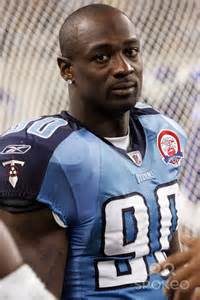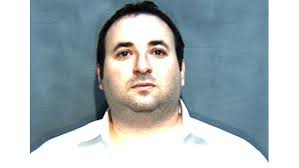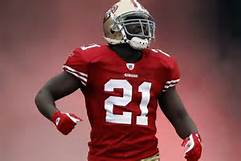 Clinton Portis (“Portis”) played his collegiate football for the University of Miami, where he was on the National Collegiate Athletic Association (NCAA) National Championship team of 2001 and earned All-Big East First Team Honors in 2001.[1]
Clinton Portis (“Portis”) played his collegiate football for the University of Miami, where he was on the National Collegiate Athletic Association (NCAA) National Championship team of 2001 and earned All-Big East First Team Honors in 2001.[1]
Portis was drafted by the Denver Broncos (“Broncos”) in 2002 in Round 2, Pick 51 and played for the Broncos during the 2002-2003 seasons.[2] During his first two seasons with the Broncos, Portis rushed for over 1,500 yards in each season, averaging 5.5 yards per carry, and was selected as the National Football League (NFL) Offensive Rookie of the Year (2002).[3] Just before the 2004 season, the Broncos traded Portis to the Washington Redskins (“Redskins”) in exchange for Pro-Bowl Cornerback Champ Bailey and a 2004 2nd Round pick.[4] During the 2004 season, Portis rushed for 1,315 yards, averaging 3.8 rushing yards per carry.[5] Portis was Redskins’ starting running back for seven seasons where he averaged 81.2 yards per game, was a two time Pro-bowler, and was voted one of the 80 greatest Redskins’ players over his career.[6] He accumulated 9,923 rushing yards, averaged 4.4 yards per carry, compiled 75 rushing touchdowns, and had six 1000 yard rushing seasons.[7]
It is estimated that during Portis’ nine season NFL career he earned $43,101,000, having a banner year in 2004 of $13,380,000:[8]
Year Team Total Cash
2002 Broncos $1,515,000
2003 Broncos $300,000
2004 Redskins $13,380,000
2005 Redskins $455,000
2006 Redskins $3,585,000
2007 Redskins $4,500,000
2008 Redskins $10,430,500
2009 Redskins $1,245,000
2010 Redskins $7,690,500
Total 9 seasons $43,101,000[9]
As previously indicated Portis was drafted by the Broncos and signed in July of 2002 to a four year $2.65 million contract.[10] He was traded to the Redskins in March of 2004 and it was announced that the deal that Portis reached with the Redskins would make him the highest paid running back in league history.[11] It was reported that the eight year deal was worth $50.5 million and included $17 million in combined signing and option bonuses, and was negotiated by agents Drew Rosenhaus (“Rosenhaus”) and Jason Rosenhaus.[12]
Portis was released by the Redskins in February of 2011 and retired from professional football in August of 2012.[13] After retirement Portis admitted to have suffered at least ten concussions.[14] In 2013, Portis joined other former NFL players in a civil class action lawsuit against the NFL with regards to repeated concussions and other head injuries.[15]
The financial woes post-retirement of professional football players are well documented.
Portis filed for Chapter 11 bankruptcy on November 5, 2015, and according to the bankruptcy filings, owes various creditors approximately $4,857,659.50.[16] What follows is a list of creditors holding the twenty largest claims pursuant to the bankruptcy filings:
- $1,023,020.00 to Residential Credit Solutions, Inc. (mortgage deficiency);
- $500,000 to Nischelle Turner (Entertainment Tonight correspondent and CNN contributor);
- $500,000 to Rhonnel Hearn (mother);
- $390,000 to the IRS (back taxes);
- $287,178.56 to MGM Grand Hotel, LLC which holds a judgment in said amount (gambling debts);
- $200,000 to Jamillah Wade (domestic support obligations);
- $200,000 to Trinity Bank (deficiency from foreclosed mortgage);
- $170,000 to Marina District Development Company for a judgment;
- $110,945 to Bank of America (Home Equity Line);
- $100,000 to Nicole Miller (domestic support obligations);
- $100,000 to Aquavia Lightsey (domestic support obligations);
- $86,340.37 to Kathryn Jones for a judgment;
- $65,553.00 to BMW Financial Services (deficiency from repossessed vehicle);
- $59,789.37 to Audi Financial Services for a judgment (delinquent payments on Audi S5);
- $1,910.00 to Bank of America (credit card);
- $40,542.50 to Rosenthal Rosenthal Rasco Kaplan for a judgment on attorneys’ fees;
- $40,000 to Michael W. Simon of Simon & Sigalos, LLP (outstanding attorneys’ fees);
- $50,000 ($20,000 secured) to Chrysler Capital;
- $12,000 to Lashaundra Jones; and
- $899.09 to Verizon Wireless.[17]
As an asset in his bankruptcy filing, Portis only listed $150.00 in his checking account.[18] The filings also include Portis’ average monthly income: he receives $3,500 per month in disability payments from the NFL, and $1,000 per month for freelance sideline reporting at NFL games. [19]
According to the filing, Portis lists approximately $13.29 million in total assets, “but $10 million of that should have an asterisk” next to it .[20] “[Portis] lists claims against Pro Sports Financial ($8 million) — an outfit he sued in federal court over a failed casino venture – and a $2 million claim against Jade Private Wealth Management.”[21] Jade Private Wealth Management is a now out-of-business Virginia firm.[22] Jade’s former owner, Jinesh “Hodge” Brahmbhatt, had previously been banned as a financial advisor by the NFLPA after scamming several professional athletes, including Portis, out of millions of dollars by the Financial Industry Regulatory Authority[23] which termed the transactions as a “Ponzi Scheme.”[24]
In my editorial in the Milwaukee Journal Sentinel dated October 17, 2012 entitled “Woodson, A Financial All-Star,” I listed reasons why athletes lose their fortunes and face financial stress and bankruptcy based on past research, including:
1) spending like a drunken sailor as if the checks will never stop; 2) creating unsustainable lifestyles; 3) buying houses the size of Texas; 4) diamonds and automobiles seem to be the favorite consumables; 5) risky and sometimes even inane ‘investments,’ such as inflatable furniture rafts, sonic rays, music labels, nightclubs, T-shirt companies, cosmetic procedures and Ponzi schemes; 6) a chronic misallocation of investment dollars into nonliquid assets and private equity deals; 7) misplaced trust and agent mismanagement; 8) granting powers of attorney; 9) divorce and paternity actions; and 10) supporting enablers.”[25]
Portis is a story of youth, enormous wealth, and misplaced trust. Portis’ spending patterns fit the characteristics of athletes who go broke, including $390,000 in back taxes, a combined $1,223,000 owed in home mortgage deficiencies, $412,000 in unpaid domestic support to four different women,[26] $65,553 on a repossessed BMW, $457,178.56 to casinos for gambling debts, and finally, a predatory financial advisor.[27]
With respect to the Borgata gambling debt, on June 17, 2011 Portis received from Borgata a line of credit that was up to $200,000.[28] Over the next ten months he repaid $30,000.[29] However, “he . . . attempted to repay the remainder with six checks that were all refused by the bank because Portis had insufficient funds.”[30] The casino has filed an adversary proceeding in his bankruptcy case requesting non-dischargeability.[31]
The United States Trustee has filed a Motion to Dismiss Portis’ bankruptcy “citing the fact that Portis has failed to submit financial reports and tax documents” as required, and “has not paid his mandated court fees.”[32] The dismissal was scheduled to be heard on March 3, 2016.[33]

 At the center of any athlete’s bankruptcy is a bad investment and a questionable financial advisor. In the case of Portis, there was a bad investment, Center Stage bingo casino in Dothan, Alabama. Thirty-five former NFL players were investors in Center Stage.[34] The casino was raided by Alabama state authorities in July of 2012 and its illegal bingo computer monitors were subsequently taken.[35] Center Stage’s bankruptcy filing included $68 million in losses with as much as $43.6 from NFL players.[36] Among the players who lost money in Center Stage were Fred Taylor, Jevon Kearse, Terrell Owens, Plaxico Burress, Clinton Portis, Roscoe Parrish, Gerald Warren, Kyle Orton, Greg Olsen, Santonio Holmes, and Santana Moss, to name a few.[37]
At the center of any athlete’s bankruptcy is a bad investment and a questionable financial advisor. In the case of Portis, there was a bad investment, Center Stage bingo casino in Dothan, Alabama. Thirty-five former NFL players were investors in Center Stage.[34] The casino was raided by Alabama state authorities in July of 2012 and its illegal bingo computer monitors were subsequently taken.[35] Center Stage’s bankruptcy filing included $68 million in losses with as much as $43.6 from NFL players.[36] Among the players who lost money in Center Stage were Fred Taylor, Jevon Kearse, Terrell Owens, Plaxico Burress, Clinton Portis, Roscoe Parrish, Gerald Warren, Kyle Orton, Greg Olsen, Santonio Holmes, and Santana Moss, to name a few.[37]
At the center of the controversy was financial advisor Jeff Rubin (“Rubin,” pictured below), “who at one time operated one of the largest financial adviser firms in the NFL,” Pro Sports Financial.[38] Rubin attended the University of Florida where he met many future NFL players and ultimately graduated in 1997 with a degree in exercise and sports sciences.[39] Rubin was first an insurance salesman and helped expose a Ponzi scheme involving then NFL player agent Tank Black, and as a result he secured his relationship with players.[40]
 There were plenty of warning signs and red flags with respect to Rubin’s behavior and inability to safely manage his clients’ finances. As early as 2003, Portis’s agent, Rosenhaus, was allegedly warned by former NFL player, Barrett Green that Rubin had mismanaged his money.[41] One source has indicated that Rosenhaus and Rubin shared at least 26 clients.[42] In September of 2004, “a $119,000 complaint was filed against Rubin with FINRA by former NFL Linebacker Johnny Rutledge.[43] Rutledge alleged ‘several of his signatures on certain life insurance application documents [were] not his.’”[44] According to Broker Check, which is publicly available on the FINRA website, Rubin and his firm settled a claim for $40,000 shortly after it was filed.[45] They did so without either admitting or denying the allegations.[46]
There were plenty of warning signs and red flags with respect to Rubin’s behavior and inability to safely manage his clients’ finances. As early as 2003, Portis’s agent, Rosenhaus, was allegedly warned by former NFL player, Barrett Green that Rubin had mismanaged his money.[41] One source has indicated that Rosenhaus and Rubin shared at least 26 clients.[42] In September of 2004, “a $119,000 complaint was filed against Rubin with FINRA by former NFL Linebacker Johnny Rutledge.[43] Rutledge alleged ‘several of his signatures on certain life insurance application documents [were] not his.’”[44] According to Broker Check, which is publicly available on the FINRA website, Rubin and his firm settled a claim for $40,000 shortly after it was filed.[45] They did so without either admitting or denying the allegations.[46]
An article written by Jason Cole and Rand Getlin entitled “Raucous Lifestyle Leads to Fall of Jeff Rubin, Former Financial Adviser to NFL Players” chronicles not only Rubin’s spending habits and lifestyle, but all the red flags and misdeeds that could lead to financial mismanagement.[47]
As a result of the Alabama casino investment and other investments, Rubin was barred from the securities industry after 31 NFL players lost $43 million and the casino went bankrupt.[48] The Financial Industry Regulatory Authority, a self-regulatory body for Wall Street, indicated that Rubin of Lighthouse Point, Florida made unsuitable and risky investment recommendations to his clients.[49] Executive Vice President and Chief of Enforcement for FINRA Brad Bennet said “This case demonstrates how broker misconduct can target high-income, inexperienced, and vulnerable investors.”[50] He further stated that “Jeffrey Rubin took advantage of professional athletes who placed their trust in him.”[51]
 Five players, Portis, Terrell Owens, Mike Peterson, Roscoe Parrish, and Dwayne Starks, have filed a malpractice lawsuit seeking damages against the law firm of Greenberg Traurig and Attorney Pamela Linden (“Linden”), a partner in that law firm with respect to the Alabama casino project that is now in Chapter 11 Bankruptcy.[52]
Five players, Portis, Terrell Owens, Mike Peterson, Roscoe Parrish, and Dwayne Starks, have filed a malpractice lawsuit seeking damages against the law firm of Greenberg Traurig and Attorney Pamela Linden (“Linden”), a partner in that law firm with respect to the Alabama casino project that is now in Chapter 11 Bankruptcy.[52]
The lawsuit indicates that the players met Linden through their former financial advisory firm, Pro Sports Financial, which was owned by Rubin.[53]
On November 9, 2011, Portis commenced his own lawsuit against Greenberg Traurig, P.A. and Linden in the Circuit Court of the Eleventh Judicial Circuit in and for Miami-Dade County, Florida.[54] A copy of the pleading alleging Negligence and Breach of Fiduciary Duty is here: https://turtletalk.files.wordpress.com/2011/11/clinton-portis-v-greenberg-traurig-complaint.pdf. Paragraph 41 of said pleading indicates that on or before Portis decided to invest funds in the project, Linden and Greenberg Traurig knew, but failed to disclose to Portis, the following material facts:
- That the documents prepared by Linden transferred 100% control of decisions and management to Miami Pro Group, Miami Pro Group Management, and ultimately Rubin and/or Rappaport;
- That Linden may have, directly or indirectly, held an ownership interest in the project;
- That Greenberg Traurig represented certain Indian Tribes and/or assisted the Indian Tribes in lobbying in the State of Alabama to prohibit gambling within the State of Alabama;
- That Greenberg Traurig worked on prior anti-gambling Alabama lobbying efforts, even though Greenberg Traurig was advising Portis and knew that his investment returns were contingent on the continuation and success of legal gaming in Alabama;
- That the electronic bingo, which was the profit center of the Project, was illegal in Alabama at the time Portis made his investment, and is still illegal as of the date of the filing of this action;
- That the only gaming allowed in Alabama at the time that Portis made his investment was charitable bingo and that the profits from the gaming had to go for charitable purposes and were not permitted to be given to Portis as a return on his investment;
- That they acted as attorneys for the Pro Sports Advisors, the Miami Pro Group and the Miami Pro Group related entities and managing members all related to the Casino Project; and
- The risks inherent with the investment, some of which are illustrated in the unexecuted Subscription Agreement prepared by Linden.[55]
The allegations of the Complaint also show the trap that attorneys can fall into if not vigilant about maintaining an office free of conflicts of interest. Below are some paragraphs that illustrate this:
- Specifically, the Pro Sports Advisors and Gillie [sic] told Portis that his investment in the Project would be in the form of a loan that would be secured by real estate. They also told him that the loan would be repaid with interest, and that as a result of the loan, he would also have an ownership interest in the Project. Linden was responsible for drafting loan documents that would adequately protect Portis’ loan to the Project. Unfortunately, because of her very close relationship with the Pro Sports Advisors, and as a result of her own “interests” in the Project, she did not[;][56]
- Instead, she drafted documents that gave all of the control over repayment of the loan to the Pro Sports Advisors (who are no longer Portis’ financial advisors); the loan documents drafted by Linden gave Portis absolutely no control over the repayment of his own investment[;][57]
- Linden also failed to warn Portis about the risks inherent in investing in the Project (it is likely prohibited under the NFL rules of conduct and placed him in a position to suffer devastating losses); she failed to disclose her very close relationship with the proponents of the investment in the Project; she failed to disclose that she had (or was promised) an interest in the Project; and she failed to properly obtain a waiver of the conflict of interest that arose out of her close relationship with Gilley and the Pro Sports Advisors[;][58]
- Linden did a large volume of work for Pro Sports. She, and her firm, counseled the Pro Sports Advisors and represented them in many different matters and derived substantial revenues through this representation. She actually spent a considerable amount of time in the office of Pro Sports and was extremely friendly with its officers/manager, Rubin, Rappaport and Mack. This close relationship clouded Lindens’ judgment and led her to place her own financial interests, and those of her friends at Pro Sports, ahead of Portis’ interests. Upon information and belief, Linden stood to benefit financially as a result of Portis’ investment in the Project. This was also never disclosed to Portis[;][59]
- Linden knew that Portis played football in the National Football League and that, consequently, he was governed by the NFL rules of conduct. She also knew, or should have known, that the NFL Rules of Conduct likely prohibited Portis from investing in the Project. Linden should have advised Portis that he was prohibited from making the investment, but, for obvious reasons, did not. She also knew or should have known, and had the obligation to advise Portis, that the main source of revenue for the Project, electronic bingo, was not legal under Alabama law. Moreover, instead of structuring the transaction to adequately protected [sic] Portis’ loan/investment in the Project, Linden structured the transaction to give all of the control to her close friends at Pro Sports. She even set up LLCs in Portis’ name (without his permission or authority) and other LLCs for the Pro Sports Advisors to facilitate this control[;][60]
- In September of 2007, the Pro Sports Advisors and/or Gilley convinced Portis to sign documents pledging his assets to guarantee debt for the Project. They also convinced him to purchase vacant lots adjacent to the Project and “invest these lots” in the Project. The Pro Sports Advisors assured Portis that he would not have to worry about paying the mortgage on these lots as they promised Portis that it would be paid by Gilley, the developer of the Project. As Portis’ attorney, Linden had the duty to advise Portis of the substantial risks inherent in this investment – risks that were actually known to Linden. As discussed below, Linden breached this duty[;][61]
- These concerns clearly related to Portis’ investment in Country Crossing as Rappaport further stated, “[redacted], [redacted], Clinton and [redacted] don’t have the money. They are putting at risk an amount that exceeds their net worth” (emphasis added)[;][62]
- In that same email, Rappaport advised Linden (and the others) that Portis and the other investors “…need to be sent a letter explaining that if this fails spectacularly, they could be sunk financially” (emphasis added). None of the Pro Sports Advisors ever sent Portis any letter explaining the substantial risks of investing in the Project and/or explaining Rappaport’s serious concern about the propriety of this investment for Portis. Linden also failed to provide any warning to Portis, or to make sure that the requisite warnings were provided[;][63]
- Instead of providing the requisite warnings, or assuring that Portis was warned, Linden instead prepared a waiver of conflict letter for Portis to sign to waive the potential conflict of interest that resulted from Linden’s prior representation of Gilley (the developer of the Project) in other matters. In that letter, she never even mentioned her close relationship with the Pro Sports Advisors, who were also active proponents of the Project. The waiver of conflict letter dated December 4, 2007 from Pamela S. Linden to Clinton Portis (and others) is attached hereto as Exhibit “C” [;][64]
- In 2008, unaware of the dangers of the investment in the Project that were hidden from him, Portis loaned one million dollars to the Project. As discussed, Linden had the duty to form the partnership and draft the loan documents to secure this loan/investment. She breached this duty[;][65]
- Instead, Linden created an LLC for Portis, without his knowledge or authorization, that she named CP Miami Group, LLC (“CP Miami”). Linden actually filed and signed the Articles of Organization for CP Miami designating Portis as the Managing Member and Rappaport as the Registered Agent for this LLC[; and][66]
- Portis did not discover that he had absolutely no protection and no ownership interest in the Project until Greenbeg provided one of Portis’ attorneys with documents in 2011 evidencing Linden’s breach of her obligations to Portis. Prior to that time, Greenberg, Linden and the Pro Sports Advisors concealed this information from Portis. Linden never told Portis anything at all about the structure that she had set up purportedly to secure repayment of his loan.[67]
Not only was Greenberg Traurig and Attorney Linden sued, sixteen NFL players also sued North Carolina based bank BB&T for nearly $16 million in alleged investment losses, including Portis who was a plaintiff in the BB&T lawsuit.[68] Among the allegations in the lawsuit are:
- Each of the Plaintiffs is or was a professional football player employed by teams in the National Football League[;]
- Each of the Plaintiffs entered into a separate Client Service Agreement with Pro Sports Financial, Inc. (“Pro Sports”) pursuant to which Pro Sports provided each Player with tax planning, business counseling and concierge services[;]
- Pro Sports was a financial management firm owned and operated by Jeffrey B. Rubin (“Rubin”)[;]
- BB&T developed a close business relationship with Pro Sports, Rubin and other Pro Sports employees[;]
- BB&T had a special division dedicated to targeting and servicing athletes and others in the sports industry. BB&T advertised and offered this division as a specialized service to those who qualified[;]
- As a result of the relationship between BB&T, Pro Sports and Rubin, Pro Sports deposited tens of millions of dollars of Plaintiffs’ money at BB&T[;]
- Money belonging to each Plaintiff was deposited into an account opened in the name of that Plaintiff[;]
- BB&T was provided with a copy of the Client Service Agreement between each Plaintiff and Pro Sports, each of which defined the scope of the services provided by Pro Sports to each Plaintiff, at or before the opening of each of the accounts at issue[;]
- Some accounts opened and maintained in one or more of the Plaintiffs’ names were illegitimate accounts that were opened with signature cards containing signatures that were forged by Pro Sports’ employees[;]
- BB&T directly benefited from the Plaintiffs’ accounts by, among other ways, having the tens of millions of Plaintiffs’ dollars on deposit with BB&T[;]
- After the monies were deposited, BB&T allowed numerous unusual, suspicious and extraordinary withdrawals from accounts opened in the name of each Plaintiff that were neither within the scope of the service identified in the Client Services Agreement nor authorized by the Plaintiff in whose name the account was opened[;]
- BB&T had actual knowledge that certain transactions on the Plaintiffs’ accounts were unauthorized and exceeded the scope of the Plaintiffs’ Client Service Agreements with Pro Sports[;]
- Many of the unauthorized transactions were loans or transactions made on behalf of the Plaintiffs in a casino/bingo project in Alabama known as Center Stage a/k/a County Crossing (the “County Crossing Project”)[;]
- The casino style gaming, which was the primary and most lucrative aspect of the County Crossing Project, was deemed illegal under Alabama in July of 2012. As a result, the County Crossing Project failed[;]
- BB&T also allowed numerous additional withdrawals from Plaintiffs’ account without Plaintiffs’ knowledge and/or informed consent[;]
- As a result, the Plaintiffs lost millions of dollars from the loans, transactions and other withdrawals that were made out of their accounts at BB&T without Plaintiffs’ knowledge and/or informed consent[; and]
- As a result of BB&T’s lack of good faith and reasonable care, and its otherwise improper handling of the Group A Accounts, Pro Sports and Rubin were allowed to transfer monies out of each Group A Plaintiffs account without Group A Plaintiffs’ knowledge and/or informed consent, and for an unauthorized or improper lending or business purpose.[69]
“It’s unbelievable that this could happen, and happen to so many people,” Plaintiffs’ attorney Andrew Kagan said.[70]
 Unfortunately, BB&T [formerly BankAtlantic], ignored plenty of red flags and allowed tens of millions of dollars to be transferred from clients’ accounts without their knowledge or permission. The sad thing is that by allowing this to happen, the bank has caused irreparable harm to the clients and ruined lives in the process. The money that was supposed to have supported these guys for the rest of their lives has been taken from them and many have been left with nothing. This is truly a tragic story.[71]
Unfortunately, BB&T [formerly BankAtlantic], ignored plenty of red flags and allowed tens of millions of dollars to be transferred from clients’ accounts without their knowledge or permission. The sad thing is that by allowing this to happen, the bank has caused irreparable harm to the clients and ruined lives in the process. The money that was supposed to have supported these guys for the rest of their lives has been taken from them and many have been left with nothing. This is truly a tragic story.[71]
The alleged losses asserted in the lawsuit against BB&T include:
Jevon Kearse – $7,958,000
Jamaal Anderson – $5,813,000
Lito Sheppard – $5,011,000
Santana Moss – $4,852,000
Ray Lewis – $3,778,000
Brandon Meriweather – $3,545,000
Jacob Bell – $3,339,000
Clinton Portis – $3,136,000
Gerard Warren – $3,000,000
Fred Taylor – $2,993,000
Derrick Gaffney – $2,295,000
Greg Jones – $2,006,000
Kenard Lang – $1,648,000
Frank Gore – $1,600,000
Santonio Holmes – $1,159,000
Tavares Gooden – $515,000.[72]
After beginning a jury trial in Fort Lauderdale, Florida, U.S. District Court Judge Beth Bloom accepted a settlement agreement between the parties for an undisclosed amount and dismissed the lawsuit with prejudice.[73] BB&T’s statement said, “Both parties are pleased to resolve this matter.”[74] “We have decided to keep the terms of our settlement confidential and cannot comment further.”[75] Plaintiff’s Attorney Andrew Kagan also said, “All I am at liberty to say is that both sides are pleased with the resolution.”[76]
Portis is just one of many athletes that has seen a career of riches result in financial disaster. In my post, Gronk: A Frugal Party Animal, I made suggestions as to how athletes might protect themselves in a financial sense. Those suggestions included:
- Experienced, bonded, and trusted financial advisors,
- Conservative investments,
- Cash is king,
- Limited withdrawals,
- No powers of attorney,
- Make it last,
- It’s what’s left after taxes that counts,
- Plan for retirement,
- Avoid scams, hangers on, and family demands, and
- Put a trustee between your money and potential takers.[77]
With a limited useful life, athletes need to conserve and be conservative in their financial endeavors.
Lori Shaw is a graduate of Marquette University Law School where she focused on Intellectual Property and Sports Law. Shaw was the Managing Editor for the Marquette Intellectual Property Law Review, a member of the Marquette Sports Law Review, and a Sports Law Certificate candidate in May 2016. Shaw was also a member of the Employment Law Society and Sports Law Society. Prior to coming to Marquette Law, Shaw double-majored in History and Political Science, with a Psychology minor, at Indiana University in Bloomington, Indiana.
[1] Clinton Portis, Wikipedia, https://en.wikipedia.org/wiki/Clinton_Portis#College_career (last visited Mar. 21, 2016).
[2] Id.
[3] Id.
[4] Id.
[5] Id.
[6] Id.
[7] Id.
[8] Clinton Portis Contract, Salary Cap Details & Breakdown, Sportrac, http://www.spotrac.com/nfl/washington-redskins/clinton-portis/ (last visited Mar. 21, 2016).
[9] Id.
[10] Id.
[11] Len Pasquarelli, Portis Will be Highest-Paid Running Back, ESPN (Mar. 3, 2004), http://espn.go.com/nfl/columns/story?id=1748249&columnist=pasquarelli_len.
[12] Id.
[13] AP, Ex-Redskin Clinton Portis Retires, ESPN (Aug. 23, 2012), http://espn.go.com/nfl/story/_/id/8296831/former-washington-redskins-rb-clinton-portis-officially-retires-nfl.
[14] Chris Wesseling, Clinton Portis: I suffered more than 10 Concussions, NFL (July 1, 2013), http://www.nfl.com/news/story/0ap1000000215737/article/clinton-portis-i-suffered-more-than-10-concussions.
[15] Nathan Fenno, Clinton Portis Sues NFL Over Concussions, The Washington Times (Aug. 14, 2013), http://www.washingtontimes.com/news/2013/aug/14/clinton-portis-sues-nfl-over-concussions/?page=all.
[16] Cory Collins, Clinton Portis Owes His Mom $500k, $5 million in Total Debt, Sporting News (Dec. 19, 2015), http://www.sportingnews.com/nfl-news/4688433-clinton-portis-redskins-bankruptcy-debt-where-is-he-now.
[17] Tom Ley, Bankruptcy Filings: Clinton Portis Owes Nearly $5 Million, DeadSpin (Dec. 18, 2015), http://deadspin.com/bankruptcy-filings-clinton-portis-owes-nearly-5-milli-1748702544.
[18] A.J. Perez, Clinton Portis Owes Nearly $5 Million, Counts Mother as Creditor, USA Today (Dec. 19, 2015), http://www.usatoday.com/story/sports/nfl/2015/12/18/clinton-portis-bankruptcy/77574350/.
[19] Ley, supra note 16.
[20] Perez, supra note 17.
[21] Id.
[22] Id.
[23] Id.
[24] Id.
[25] Martin J. Greenberg, Woodson, A Financial All-Star, Milwaukee Journal Sentinel (Sept. 21, 2012), http://www.jsonline.com/news/opinion/woodson-a-financial-allstar-9a6taka-170774176.html.
[26] Perez, supra note 17.
[27] Ley, supra note 17.
[28] Barry Petchesky, Filing: Clinton Portis Tried to Pay Back $170,000 Casino Credit with Bad Checks, Deadspin (Feb. 4, 2016), http://deadspin.com/filing-clinton-portis-tried-to-pay-back-170-000-casin-1757099015.
[29] Id.
[30] Id.
[31] Id.
[32] Id.
[33] Id.
[34] Jason Cole & Rand Getlin, Raucous Lifestyle Leads to Fall of Jeff Rubin, Former Financial Adviser to NFL Players, Yahoo! Sports (Sept. 4, 2012), http://sports.yahoo.com/news/nfl–raucous-lifestyle-leads-to-fall-of-jeff-rubin–former-financial-adviser-to-nfl-players-.html.
[35] Id.
[36] Id.
[37] Id.
[38] Id.
[39] Id.
[40] Id.
[41] Rand Getlin & Jason Cole, Prominent NFL Agent Drew Rosenhaus Scrutinized for Relationship with Former Financial Adviser, Yahoo! Sports (Sept. 4, 2012), http://sports.yahoo.com/news/nfl–prominent-nfl-agent-drew-rosenhaus-scrutinized-for-relationship-with-former-financial-adviser-.html.
[43] Id.
[44] Id.
[45] Sonn & Erez, PLC, FINRA Bars Fort Lauderdale, Florida Broker Jeffrey Rubin Following NFL Players’ Losses of $43 Million, SEC Lawyers Blog (Mar. 13, 2013), http://www.seclawyersblog.com/2013/03/finra-bars-fort-lauderdale-florida-broker-jeffrey-rubin-following-nfl-players-losses-of-43-million.html.
[46] Id.
[47] Cole & Getlin, supra note 36.
[48] Sonn & Erez, PLC, supra note 45.
[49]AP, Banned Broker Led 31 NFL Clients to Lose $40M, USAToday (Mar. 7, 2013), http://www.usatoday.com/story/money/personalfinance/2013/03/07/broker-nfl-clients-casino/1971349/?utm_source=feedburner&utm_medium=feed&utm_campaign=Feed%3A+UsatodaycomMoney-TopStories+(USATODAY+-+Money+Top+Stories).
[50] Id.
[51] Id.
[52] Liz Mullen, Players Sue Attorney Over Casino Investments, Sports Business Daily (Feb. 6, 2012), http://www.sportsbusinessdaily.com/Journal/Issues/2012/02/06/Labor-and-Agents/Casino.aspx.
[53] Id.
[54] Cole & Getlin, supra note 36; Complaint, Portis v. Greenberg Traurig (No. 11-37299CA20) 2011 WL 5636150 (Fla.Cir.Ct.).
[55] Id. at 10–11.
[56] Id. at 2–3.
[57] Id. at 3.
[58] Id. at 3.
[59] Id. at 3–4.
[60] Id. at 4.
[61] Id. at 4.
[62] Id. at 5.
[63] Id. at 6.
[64] Id.
[65] Id. at 7.
[66] Id.
[67] Id. at 8.
[68] Full Text of “Ray Lewis Lawsuit Against BB&T Bank,” Internet Archive, https://archive.org/stream/813865-1527781-complaint-nfl-playersbb-amp-t-3/813865-1527781-complaint-nfl-playersbb-amp-t-3_djvu.txt (last visited Mar. 21, 2016).
[69] Id.
[70] Rand Getlin, Ray Lewis, Frank Gore Among Group of 16 NFL Players Suing Bank for Nearly $53M, Yahoo!Sports (Oct. 31, 2013), http://sports.yahoo.com/news/nfl–nfl-players-suing-bank-for-nearly–60m-over-alleged-investment-losses-193748891.html.
[71] Id.
[72] Id.
[73] Richard Craver, BB&T, NFL Players Agree to Undisclosed Settlement, Winston-Salem Journal, http://www.journalnow.com/business/business_news/local/bb-t-nfl-players-agree-to-undisclosed-settlement/article_95516169-1526-523c-ab66-a78c59394def.html?mode=jqm (last visited Mar. 21, 2016).
[74] Id.
[75] Id.
[77] Martin J. Greenberg, GRONK: A Frugal Party Animal, Sport$Biz Blog (Oct. 1, 2015), https://greenberglawoffice.com/gronk-a-frugal-party-animal/.


